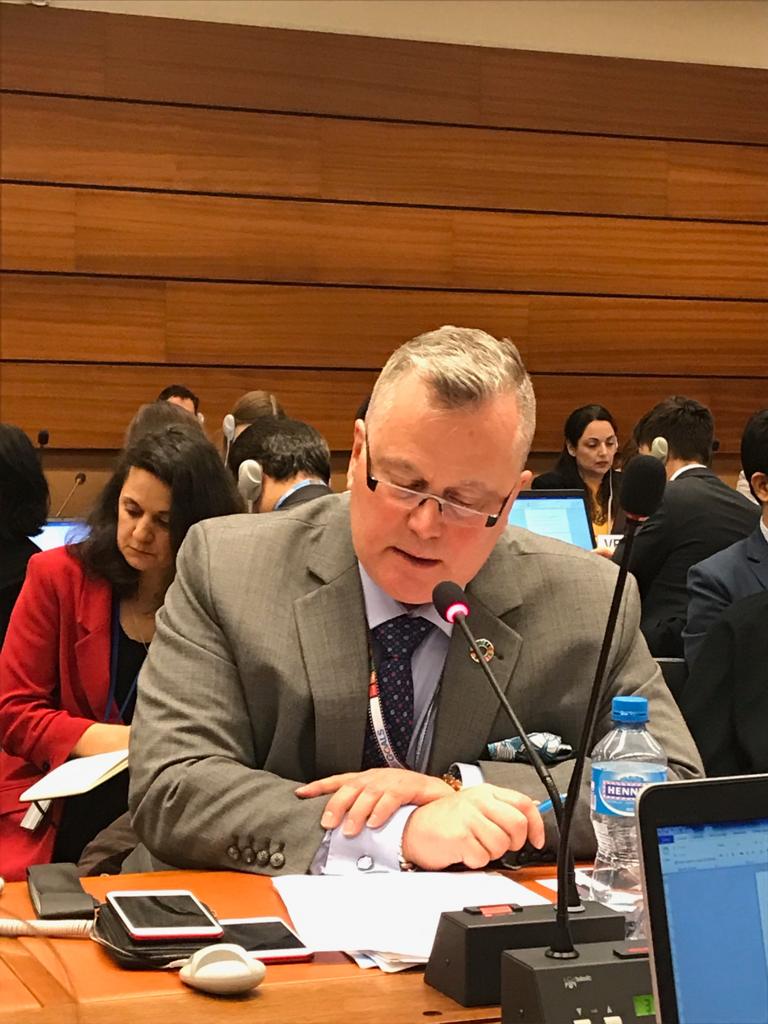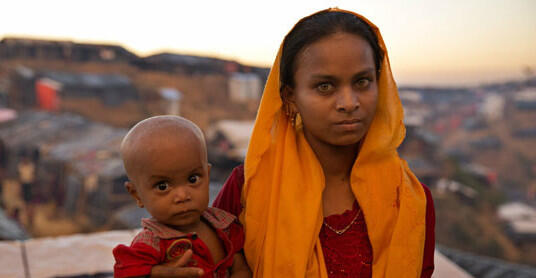United Nations aid agencies and NGO partners have launched the 2019 Joint Response Plan (JRP) for the Rohingya humanitarian crisis in Bangladesh, concentrated across the sprawling refugee camps of Cox's Bazar.
The appeal seeks to raise USD 920 million to meet the massive needs of more than 900,000 refugees from Myanmar and over 330,000 vulnerable Bangladeshis in host communities.
UNFPA is among the organisations that has long responded to the crisis, with a focus on the unique needs of women, girls and young persons.
FRIDAY, 15 FEBRUARY
ROOM XXIV, PALAIS DES NATIONS, GENEVA
Statement by Mr. Bjorn Andersson, Regional Director for Asia and the Pacific, UNFPA

Excellencies, distinguished guests, ladies and gentlemen:
The United Nations Population Fund, UNFPA, was among the first on the ground in Cox’s Bazar, serving Rohingya refugees many years before the massive influx from August 2017 onwards - and strengthening our efforts all the more since then. We have long been inspired by the generosity of the Government of Bangladesh and its people in responding to this crisis.
During my visits to the refugee camps of Cox’s Bazar, I have been deeply moved by the stories and experiences shared by Rohingya women and girls who fled Myanmar for Bangladesh. Many have delivered babies during the journey or in the refugee camps. Many have also experienced sexual assault and other gender-based violence - often resulting in severe trauma.
The emergency is now a protracted humanitarian crisis, compounded by many challenges - including weather-related risks, funding shortages, and a lack of access to livelihoods, education, and justice. This makes today’s launch of the 2019 Joint Response Plan for the Rohingya Refugee Crisis all the more timely.
The Joint Response Plan not only represents our collective efforts to deliver protection, provide life-saving assistance and foster peaceful coexistence, it also represents a commitment to strengthen our collaborative networks to ensure that together we can deliver the maximum impact for the Rohingya refugees and the host communities.
We are pleased that the 2019 JRP covers all humanitarian sectors and responds to the new challenges faced in Cox’s Bazar. For UNFPA we are also particularly pleased that the Plan addresses key cross-cutting issues, including protection and gender mainstreaming. Engaging the refugees themselves in decisions affecting their lives includes paying all the more attention to ensuring women’s empowerment and leadership in decision-making within the wider refugee community.
As a part of the Joint Response Plan, UNFPA will continue to promote and advocate for integrated services for sexual and reproductive health and reproductive rights and preventing and responding to gender-based violence, with the view to enhancing women’s and girls’ choices in managing their well-being, both physically and mentally.
This includes deploying Support Officers to provide psychosocial support for women and girls, as well as links to specialised care, such as case management in the 23 UNFPA-supported sexual and reproductive health facilities and the 20 UNFPA-supported Women Friendly Spaces.
Our integrated approach enables women and girls to have access to a range of services at any service point of their choice - enhancing their agency and options in managing their physical and psychosocial well-being.
We will also focus on scaling up interventions to address the needs of adolescent boys and girls, as they face specific circumstances and risks, and their needs have not been sufficiently addressed in the response thus far.
Young people in the refugee camps and the host communities of Cox’s Bazar are the “overlooked” persons who need crucial life skills education as well as sexual and reproductive health services to ensure that their rights are met - providing them the opportunity to realize their potential.
Ladies and gentlemen,
We, along with our partners, look forward to the voluntary, safe, and dignified return of the Rohingya to Myanmar.
However, until circumstances allow for that to happen, we may also wish to use the 2019 Joint Response Plan as a springboard to further discuss multi-year planning - with the understanding that a holistic, comprehensive and realistic approach is needed that supports both the refugees and host communities - as well as supports the Government and people of Bangladesh in their extraordinary, generous response.
Thank you.
-------------------
For more on what UNFPA has been doing to support Rohingya refugees: https://bangladesh.unfpa.org/en/news/rohingya-crisis-looking-back-looking-ahead
To support UNFPA's response to this humanitarian crisis, please consider making a donation at: https://www.unfpa.org/Rohingya


